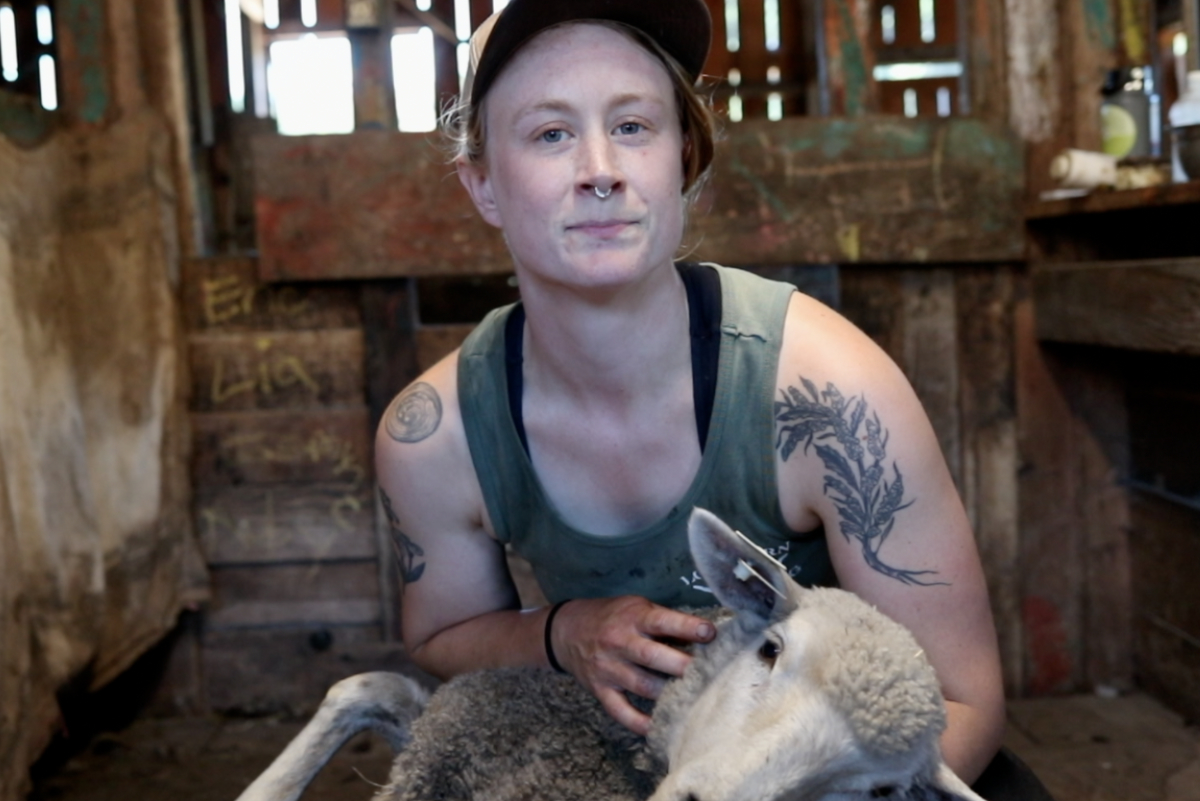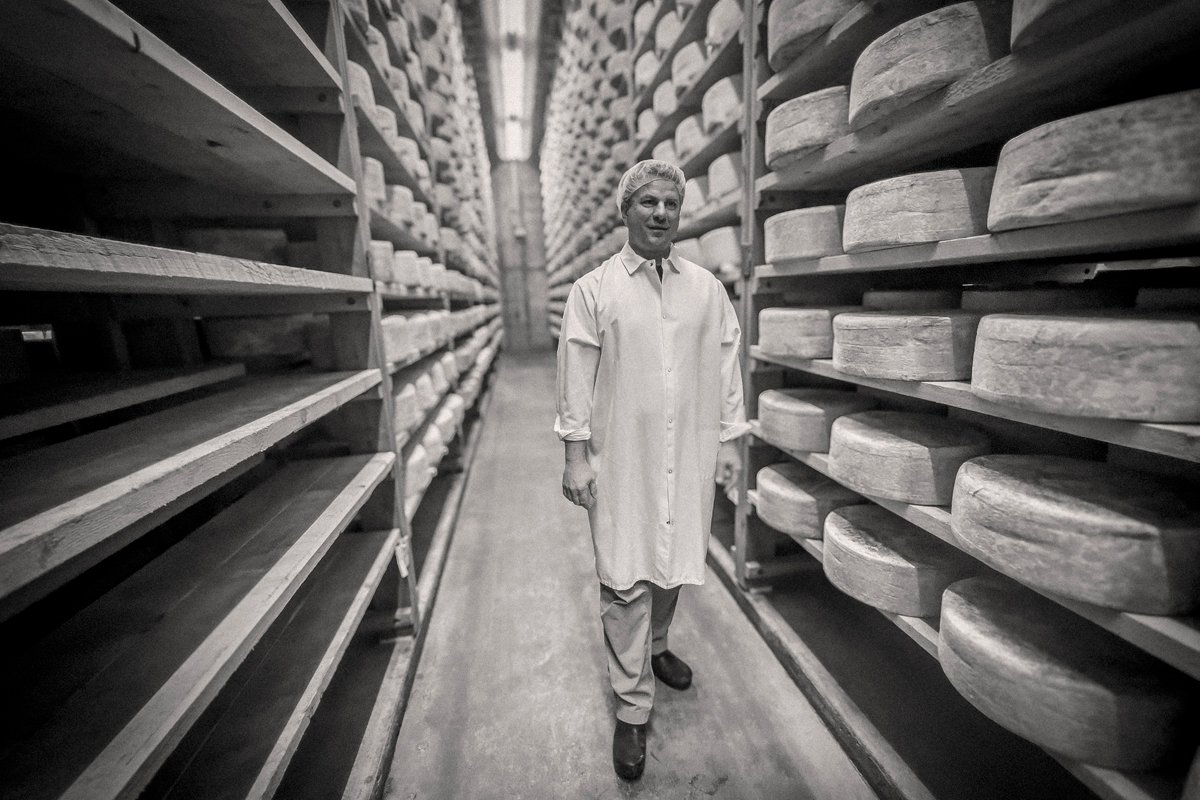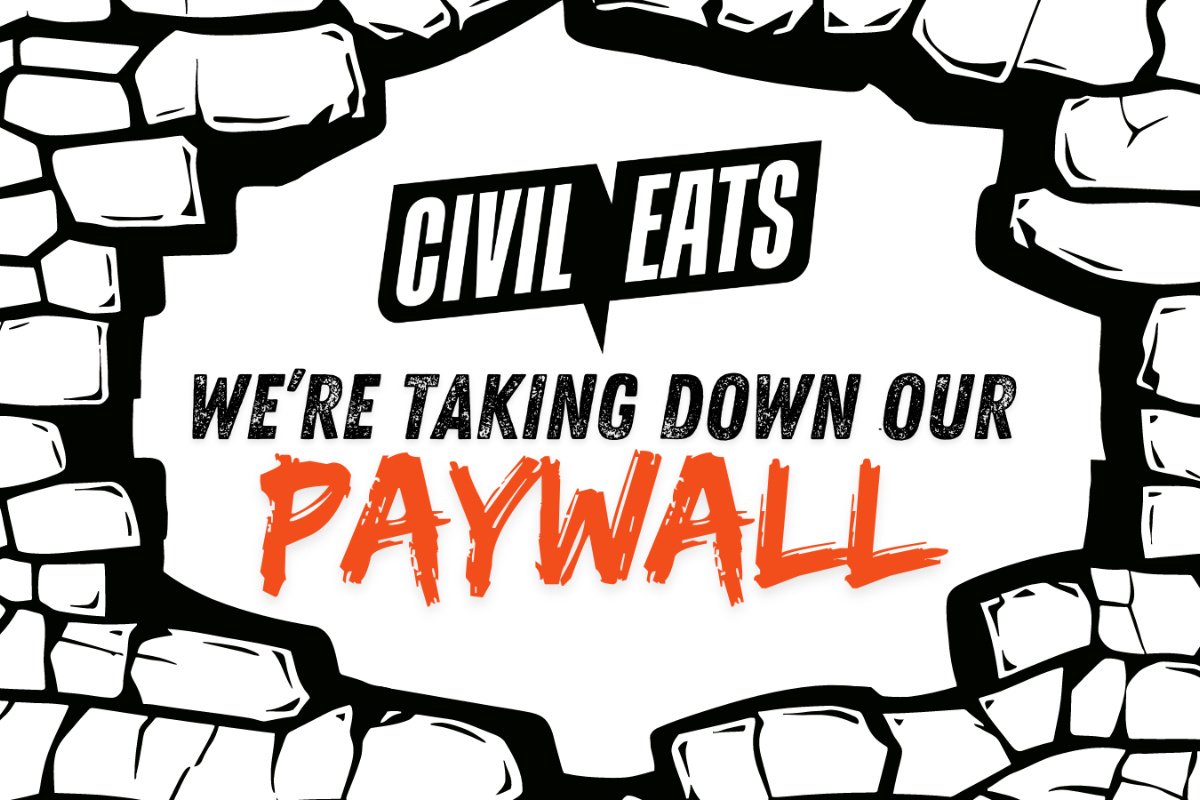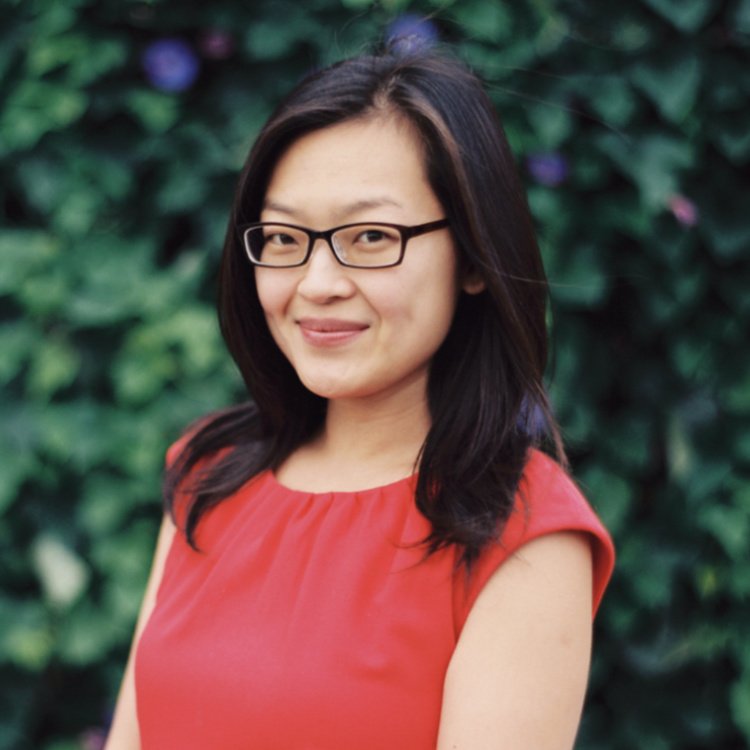By paying top dollar for milk and sourcing within 15 miles of its creamery, Jasper Hill supports an entire community.

September 13, 2021

In the latest episode of Civil Eats TV, we profile the unique way women work together in the world of wool—from the land they manage and the sheep they shear to the ways they’re contributing to vibrant local economies.
We visit Bodega Pastures, a 1,000-acre sustainable sheep ranch located in Bodega, California, managed by owner Hazel Flett, who has long employed ethical and ecological practices.
We watch as Lora Kinkade, a 30-year-old traveling shearer—a rarity in a highly competitive, male-dominated industry—demonstrates her unique and humane approach to shearing.
And we learn about Kinkade’s longstanding relationships with local ranchers, the importance of sheep-to-soil health, and the necessary role shearing plays in the health of the animals.
“Shearing is completely vital for the health and well-being of the animal,” says Kinkade.
“[Shearing] helps them avoid heatstroke, heart attack, there could be parasitic infestation if we let the sheep’s wool get too massive,” explains Rebecca Burgess, the executive director of Fibershed.
Burgess explains the importance of investing in regenerative pasture-based systems that produce “climate beneficial” wool, which is ultimately sold through her organization, at farmers’ markets, and to Jessica Switzer Green, who we watch transform it at JG SWITZER, a nearby home furnishing store, bringing the end product to a wider market.
Women are at the center of this work to reinvigorate an alternative, renewable fiber economy that goes against the grain of today’s approach to fast fashion, synthetic materials, and expendable resources. “We have devalued and ignored all of these very virtuous materials that are coming off the landscape,” says Burgess.
In discussing the current global fiber economy, where fabrics are made artificially cheap by incorporating plastics, Burgess emphasizes the importance of a holistic approach to food and fiber.
“We have to think about working landscapes as the real integrated systems they are—they’re not just feeding us, they’re clothing us,” she says.
Watch the full Civil Eats TV episode, “Women in Wool,” below; you can subscribe to our YouTube channel to see every episode and get notified when the next one airs.
Film and photos © Mizzica Films.

September 4, 2024
By paying top dollar for milk and sourcing within 15 miles of its creamery, Jasper Hill supports an entire community.
September 3, 2024

August 27, 2024

August 26, 2024

Raised on improved pasture, I’d love to join the conversation! Great optics and vistas from the farm.
It is also very welcoming to see these women succeeding and doing some very valuable good work. / Ivan Kinsman, Founding Director, Rainwater Runoff